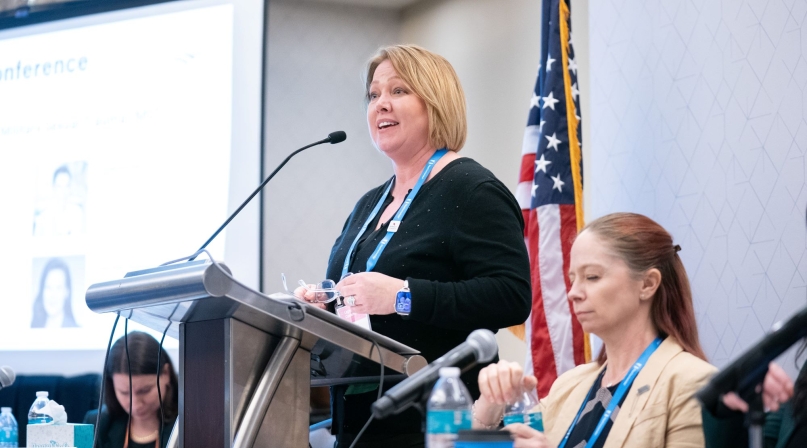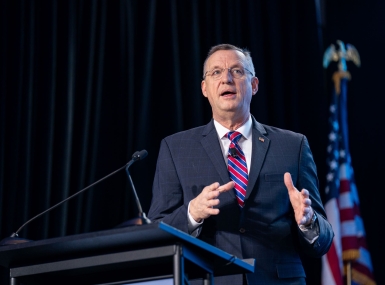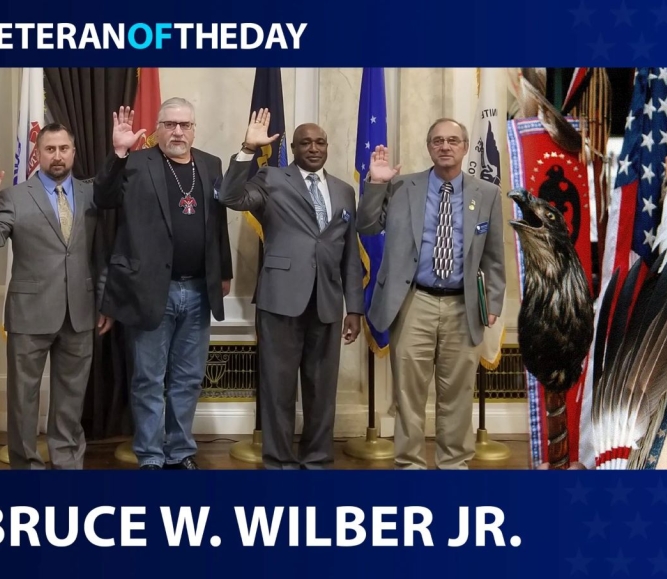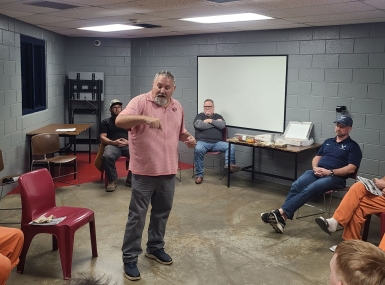County Veterans Service Offices can improve help for military sexual trauma survivors

Key Takeaways
Survivors of military sexual trauma (MST) disproportionately experience mental health issues, substance use disorder, homelessness, difficulties keeping employment and post-traumatic stress disorder, data shows.
County Veterans Service Offices should leverage local resources and train their officers on military sexual trauma to best serve survivors, according to panelists at the Veterans and Military Services Committee meeting at the NACo Legislative Conference.
MST is reported among one in three female veterans and one in 100 male veterans in the Veterans Affairs healthcare system; however, because of the stigma of reporting sexual assault and harassment and the difficulty of the process, the prevalence of MST is much higher than represented in data, said Ramsey County, Minn. Commissioner Trista Martinson, chair of the NACo Veterans and Military Services Committee.
“Unfortunately, survivors of MST must go through a grueling, retraumatizing process to try to get justice, let alone access the proper services and supports to heal from their experience,” Martinson said. “… MST is a deep threat to the wellbeing of active duty servicemembers, and it compounds the unique challenges that veterans already face when we leave the service.”
Women, people of color, members of the LGBTQ+ community and the junior enlisted are at higher risk of experiencing sexual assault and harassment in the military, data shows. Martinson shared her story of sexual trauma during service, and the stigma of reporting — which she said is “deeply embedded into our military culture” — at the committee meeting.
At 18, Martinson had recently joined the Navy and been trained on how to report sexual assault when a fellow airman attempted to sexually assault her.
“So, I went to my commander, and I reported [it],” Martinson said. “His response was, ‘I don’t have time for this, it’s your word against his. We’re going to move on, but I’m punishing both of you — that’ll teach you a lesson.’”
It was that experience and the rhetoric around sexual assault she heard in the military — “Those women deserve it; they put themselves in that situation” — that led Martinson not to file a report when she was sexually assaulted a decade later during joint Navy-Marine Corps Officer preparatory school.
Martinson became pregnant as a result of the assault and her child was later diagnosed as disabled, which led to her release on a hardship discharge. “They couldn’t have a single mom with a retarded child,” she said, which led to her joining the Army.
“You’re conditioned to know that what you say isn’t going to be believed,” Martinson said. “And I wasn’t going to let that occurrence, that assault — what someone did to me — define me as a service member or my military career.”
Because of the cultural stigma of reporting sexual assault in the military, there’s a sense of distrust in receiving care through the VA for many veterans, however the organization has a lot of resources that can be leveraged for MST survivors, said Siobhan Norris, the division director for Wake County, N.C.’s veterans services and vice chair of NACo’s Veterans and Military Services Committee.
Every VA health care facility has an MST coordinator who can help veterans navigate the system and access care, and veterans who are otherwise ineligible for VA services may be eligible for MST-related care.
The VA has done “a ton of work” to improve claims processes, and the percentage of post-traumatic stress disoder claims related to MST that have been granted has grown from 35% in 2011 to 72% in 2021, according to Kayla Williams, RAND Corporation senior policy researcher.
If a county doesn’t already have MST community groups, that’s another way to provide support; Norris, who is currently going through her claims process through the VA for MST, participates in a horse therapy program and highlighted a women’s veterans organization in Wake County.
Counties can also create MST programming out of existing models, Norris said. InterAct, a Wake County provider of domestic violence and sexual assault services, offers victim advocates to clients when they’re going through a crisis, and Norris said the county is looking into adopting a similar system for the MST claims process.
County Veterans Service Offices can make MST survivors comfortable by offering patient choice, Norris said; for many, receiving care from a provider or going through the claims process with a representative who is the same gender as their assaulter can be retraumatizing.
“When I first started this journey over a year ago, I went to the DAV [Disabled American Veterans] and it was a bunch of old men,” Norris said. “And I didn’t want to share my experience about MST with a guy who looks like he could be my grandfather or my dad, so I didn’t do that. And it wasn’t until I had access to County Veterans Service Officers and I had [a female CVSO] that I started to feel much more comfortable to share and open up everything.”
The impacts of MST can last a lifetime, and reaching out for resources is crucial, said Danielle Applegate, chair of the National Coalition of Homeless Veterans board.
Survivors of MST have higher rates of post-traumatic stress disorder than people who have experienced combat trauma or civilian sexual assault and roughly 40% of female and 3% of male homeless veterans using VA have experienced MST.
After living through MST, many situations can be triggering, and it’s important to be supported, including in a job environment, Applegate said.
“If you’re in an inflammatory situation and you were triggered and they weren’t aware of what was going on and you didn’t have resources to reach out to, and then you lost your job,” Applegate said. “So now you’re not only on the edge, now it’s ‘I can’t pay the bills next week, who’s gonna pay the babysitter?’ That spiral is really rapid, it tends to go down quickly.
“And as a society, as a county, why do we care about that? It costs three times the amount to get someone out of homelessness as it does to keep them in a home and in a job.”
CVSOs should get connected to other organizations in their county that might be more experienced in handling sexual trauma as a way to support survivors, Martinson said. Another way CVSOs can help is to be more engaged throughout the claims process – don’t wait for a client to reach out to you after they already need support, Williams said.
“If you know when their C&P exam is, touch base with them that day, proactively,” Williams said. “Don’t wait for them to call you and say it was traumatizing. You reach out, see if they can be seen at the Vet Center, if they can find a victim advocate.
“Make sure that they know what resources are out there, but have that outreach, warm handoffs if needed, instead of just handing somebody a brochure and wandering off.”
Related News

Helping veterans, with an assist from counties, is ‘priority number one,’ VA secretary says
County officials can “touch more lives than any member of Congress or any governor,” because they see their constituents every day, said Doug Collins, the new VA secretary.

County Countdown – January 14, 2025
Every other week, NACo's County Countdown reviews top federal policy advocacy items with an eye towards counties and the intergovernmental partnership.
County News
Wisconsin CVSO makes history as first Native American to lead association
Bruce Wilber's presidency of the County Veterans Service Officers Association of Wisconsin is significant for Native Americans, who have served in the military at higher rates than other ethnic groups since 9/11.


